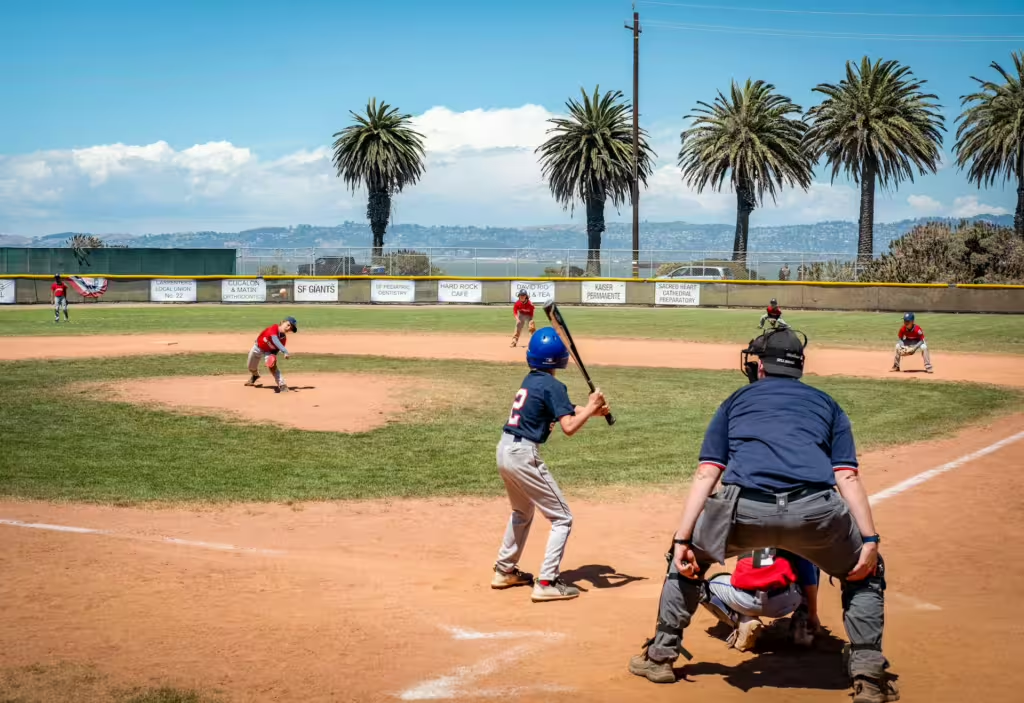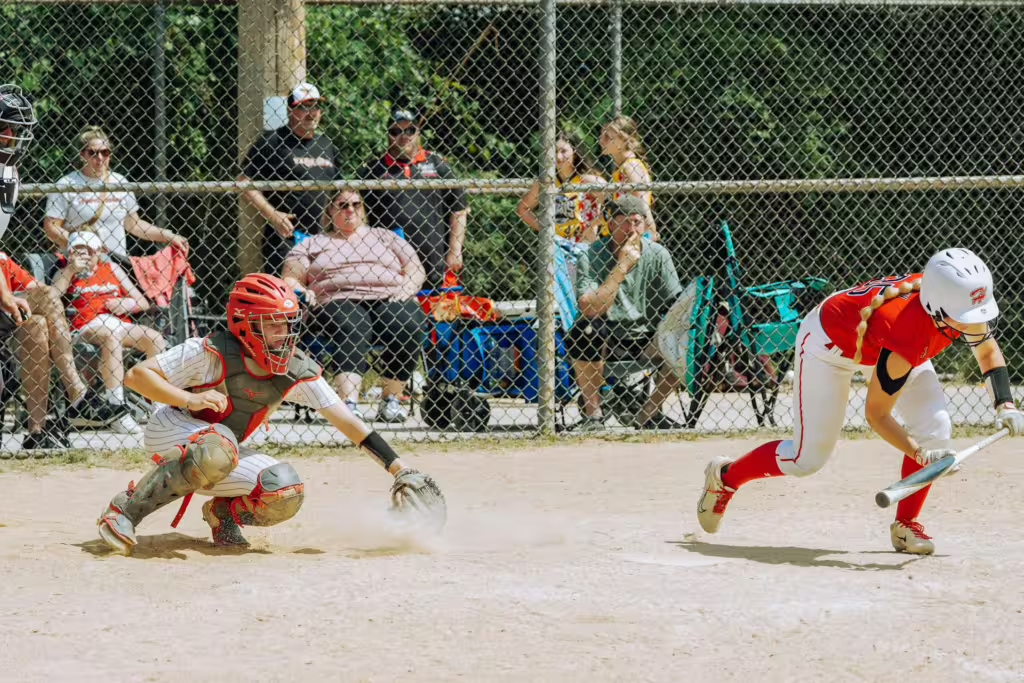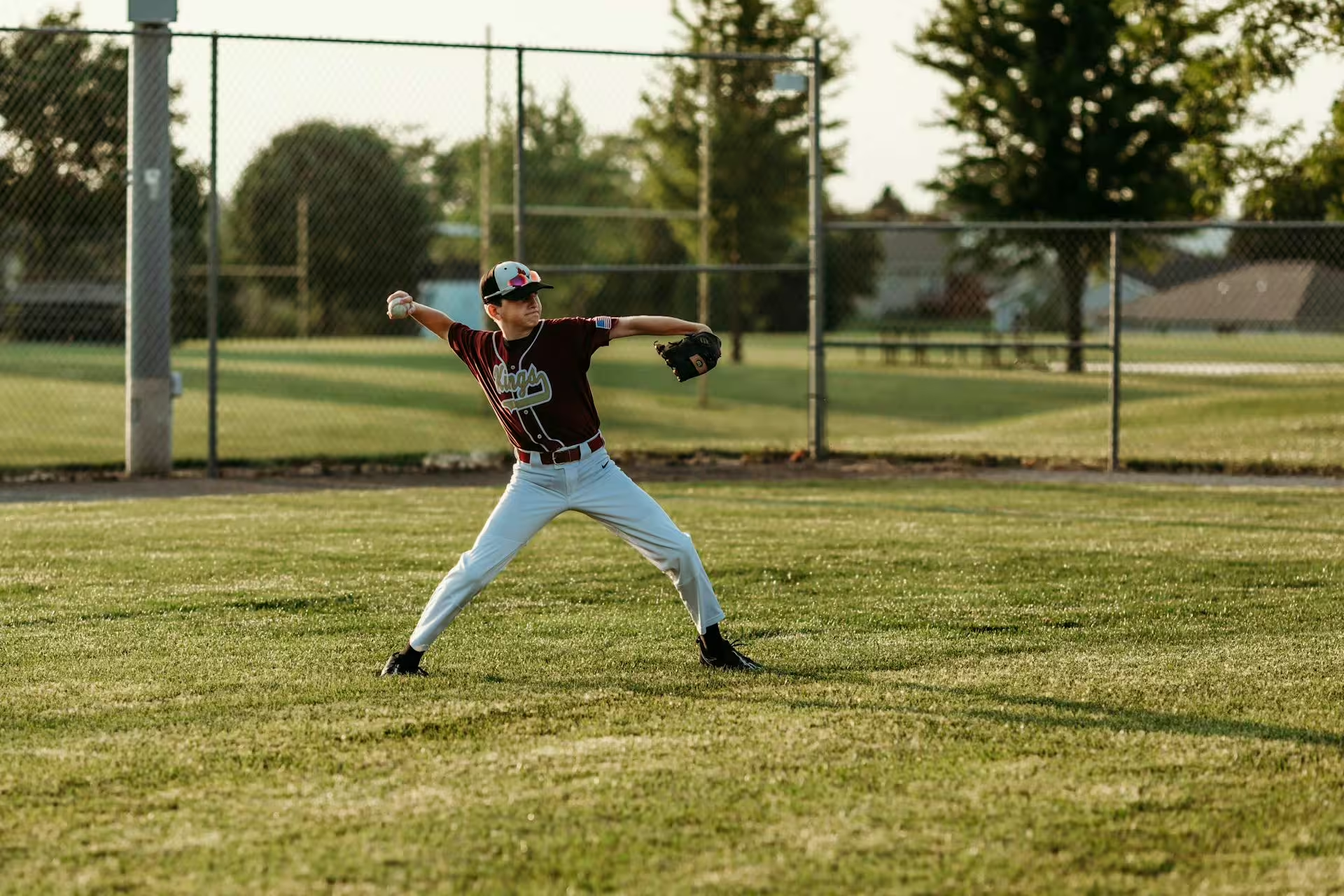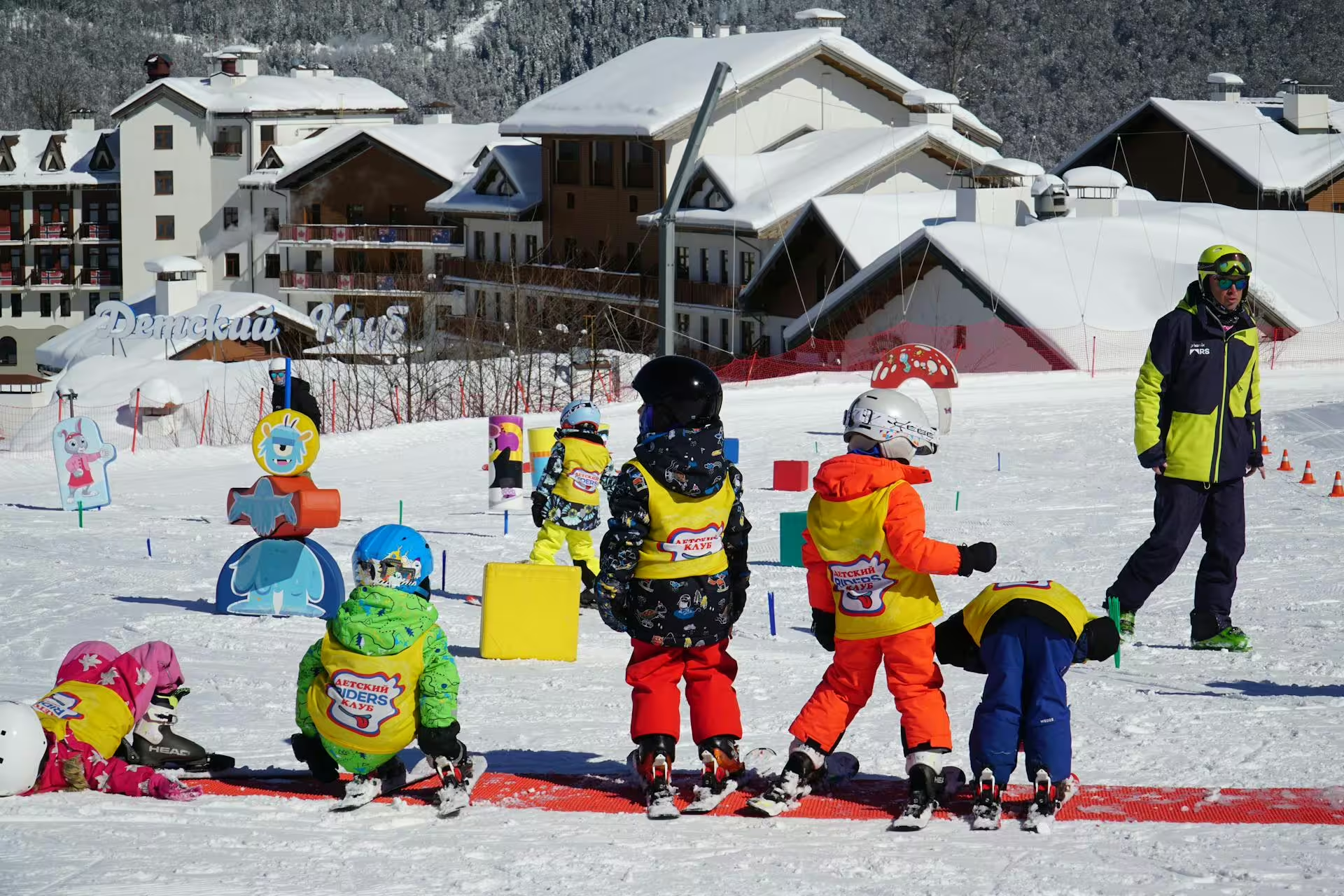As with baseball itself, Little League Baseball is a something of a cultural mainstay of the American sports experience. This cherished tradition introduces children to the joys of baseball from a fairly young age, giving them the chance to learn a bevy of valuable life skills such as teamwork, discipline, and perseverance. Yet, not every parent knows enough about baseball to feel confident enough to enroll their child in the sport.
This is one of the biggest hurdles that parents need to clear when it comes to youth sports; a woeful unfamiliarity with the concept itself. Perhaps they are unfamiliar because they didn’t play sports as children or more likely, they simply haven’t encountered any youth sports since they became parents and don’t know the proper way to navigate that world. The good news is, we are here for those parents. In many ways, that’s precisely why we started Cultured Athlete in the first place.
The truth is, whether your child is just starting or has been playing for a few seasons, understanding the rules, expectations, and ways to support your young athlete is essential. Not only will this make the experience more enjoyable for both parents and players, it will help you as parents to feel more confident about enrolling them in different sports programs as they grow.
In this article, we will provides anxious parents with the tools they need to fully comprehend and navigate the world of Little League Baseball. We will discuss the sport, in general, as well as all associated rules, and league expectations. Finally, we will offer up practical ways that parents can use to encourage and support their child throughout their Little League Journey.
What is Little League Baseball?

Let us be clear, Little League Baseball is not exactly the same as “youth baseball” or “pee wee baseball.” Though similar, the actual Little League Baseball organization is an organized youth sports program that provides children between the ages of 4 and 16 with a variety of opportunities to play baseball. This is done, as with most organized sports, in a structured, though highly positive environment. The original Little League Baseball group was founded in 1939, but over the years, it has grown into an international organization with local leagues all over the world.
There are several divisions in the Little League Baseball organization, these include:
Tee Ball (Ages 4-6) – Tee ball serves as a basic intro to the game of baseball for very young children. It has simplified rules and a good deal of coach-assisted play.
Minor League (Ages 7-11) – Older kids who can now hit the ball without the aid of a tee, can play in minor league divisions. The developmental level increases here, specifically with the introduction of coach and player pitching.
Major League (Ages 9-12) – Things get a bit more competitive at this level of play; so competitive that players in this bracket could end up in the Little League World Series if they are good enough.
Intermediate (50/70) Division (Ages 11-13) – As kids turn into proper teens, so too does the intermediate tier represent a transitional level. The game itself has changed at this point and the field is transformed with longer base paths and pitching distances.
Junior League (Ages 12-14) and Senior League (Ages 13-16) – The league is not little at this stage, just as the players are no longer so. The junior and senior leagues represent more advanced levels with full baseball rules, even though they are mostly under the auspices of the Little League name.
It’s important that parents understand these divisions so they can determine which one their child falls into. This will not only helps you to set appropriate expectations for your child’s sports experience, but for your own expectations as the parent of a budding sportsman.
Understanding Little League Rules
As open-ended as it might seem, Little League actually has specific rules designed to ensure fair play, safety, and sportsmanship. Parents will no doubt appreciate that these concepts are highlighted in the organization’s bylaws, but there are some key rules that parents should know before enrolling their kids into the program:
Player Eligibility
- Parents can register children with their local Little League. chapter. They must provide proof of age and residency in order to do so.
- There are certain boundaries in place to determine which league a child can play in.
Game Length and Structure
- Little League games typically last six innings in the lower divisions and seven innings in the upper divisions.
- That said, a game can end early if a team is ahead by 10 runs or more after four innings. This is commonly referred to as the Mercy Rule.
- The reason that each game has a specific time limit is to prevent excessive delays, which anyone who has ever watched a sloggy baseball game can tell you, is not particularly fun to play or witness.
Batting Rules
- When it comes to batting, all players must bat in a continuous order. This is to ensure that no child has to sit out from the batting lineup.
- Note that bunting is allowed in some divisions, but players must follow specific guidelines to ensure it is done within the rules.
Pitching Rules
- To protect young arms, Little League features pitch count limits which are strictly enforced:
- Ages 7-8: Are allowed 50 pitches per day
- Ages 9-10: Are allowed 75 pitches per day
- Ages 11-12: Are allowed 85 pitches per day
- Ages 13-16: Are allowed 95 pitches per day
- Mandatory rest days will apply based on the number of pitches thrown.

Fielding and Playing Time
- Each and every player must play at least two innings in the field and have at least one at-bat in a standard game.
- Coaches are encouraged to rotating positions, especially at younger levels, to help each child develop skills at a more balanced pace. As kids age and show aptitude in certain areas, those positions may become more permanent.
Sportsmanship and Conduct
- Little League has a zero tolerance policy when it comes to poor behavior. This means that parents, coaches, and players must demonstrate respect.
- Combative parents be warned, the umpires’ decisions are final, and arguing calls is greatly discouraged by the League.
- Players must follow safety rules at all times, such as wearing helmets while batting. There is also no on-field horseplay.
League Expectations for Parents
As a parent, it’s important to remember that you play a crucial role in your child’s Little League experience. Here’s what is expected of you:
Encourage, Don’t Criticize
- Try and encourage rather than criticize. Do this by making your focus on effort rather than results.
- Always praise good sportsmanship and teamwork.
- We know you want to be as involved as possible, but do your best to avoid coaching from the stands—let the coaches do their job.
Follow League Guidelines
- Be timely! Ensure your child arrives on time for practices and games and doesn’t always skip out early.
- Parents will need to provide the necessary equipment for their child to play (glove, cleats, etc.).
- Always abide by league policies regarding attendance and behavior.
Volunteer When Possible
- Bear in mind that Little League is run largely by volunteers—coaching, scorekeeping, and concession stand duty help keep the league running smoothly. This means that any help you can offer to make these things easier, will be greatly appreciated.
- If you can’t commit time but you have funds, you might consider sponsoring a team or donating equipment to the League itself.
Respect Officials and Coaches
- Respect the employees and the work they do. Umpires and coaches dedicate their time to help kids play, so even if you disagree with a call, model respect and good sportsmanship so that your child will do the same.
- If you have concerns with a coach, player, or umpire’s behavior, address them privately with league officials. Do NOT hash things out in the open where everyone can see. Your kids see that too, remember!
Supporting Your Child During the Season
Despite what you might think, a child’s success in Little League is not just about skill—it’s about having fun and building the confidence they need to stick with it and get better. Here’s how parents can support their children in this Little League journey:
Help Them Practice
- Give your kids the time they need outside of sports to familiarize them with the game and improve their skills.
- Try and practice with them by playing catch in the yard, work on batting skills, or visit the local batting cages.
- Parents should encourage daily stretching and light conditioning to keep their kids ready for sport.
- As always, be patient, even when things seem slow. Improvement takes time and practice always works.
Promote a Positive Mindset
- Parents can teach the proper mindset and build resilience by emphasizing that mistakes are part of the learning process. When we make mistakes, we discover what NOT to do, and that, in and of itself, is a valuable lesson.
- Remember to celebrate even the smallest of victories. Your kid makes a great defensive play? Celebrate it! They put in good effort in practice? Celebrate it! Every little victory builds on a child’s confidence, which helps them play better in the future.
- Remind your children of the importance of supporting teammates, even when things don’t go well.

Foster Good Nutrition and Hydration
- Parents should ensure their child eats a balanced meal before games and before practice.
- Provide them with a large water bottle and remind them to drink plenty of water, especially in hot weather.
- Avoid giving your kid too many sugary drinks or overly heavy meals right before playing. We don’t want any cramps, now do we?
Balance Baseball with Other Activities
- As with most sports, the trick is to find balance with the other activities in your child’s life.
- Parents should encourage participation in other sports and hobbies so that their child doesn’t burnout of Little League prematurely.
- We probably shouldn’t have to say this, but the best bet for your child’s overall well-being is to prioritize schoolwork while still allowing some time for baseball.
Cheer Loud, But Respectfully
- When you cheer for your kid, cheer for all players, even if they are on the other team.
- Applaud good plays from both teams.
- Do what you can to be civil, even when you feel yourself getting caught up in the spirit of competition. Also, avoid making any negative or distracting comments during games.
Preparing for All-Star and Postseason Play
If your child excels during the regular season, they might get a chance to participate in the All-Star tournament, an event which, if played well, can lead them to the Little League World Series.
- Bear in mind that All-Star selection is based on three main categories: skill, attitude, and sportsmanship.
- As one might anticipate, practices for All-Star players may be more intense, and some travel could be required.
- Parents should prepare for a greater commitment of time, effort, and even cost when their child reaches this milestone. It’s all good things, but it will be more on everyone involved.
Handling Disappointments
We know that not every game or season is going to “go as planned.” That is why it’s important to teach your child how to cope with setbacks in the right way:
Losing is part of sports: Help your child to see losses as learning experiences not setbacks.
Playing time may be limited: Remind your kid that effort in practice will ultimately lead to more opportunities.
Not making an All-Star team isn’t the end: There are always future seasons and new opportunities on the horizon.
Cultured Athlete Says…
As you can see, Little League Baseball is more than just a game—it’s an opportunity for children to learn baseball from the ground up. By participating, they can develop lifelong skills, make friends, and create lasting memories that will guide them in other youth sports experiences. As a parent, it is up to you to understand the rules, respect the league expectations, and provide positive support to your child; doing so will enhance their experience as well as your own. By fostering a love for the game, parents help young athletes build up confidence and sportsmanship that extends far beyond the baseball field!
Discover more from CulturedAthlete
Subscribe to get the latest posts sent to your email.






